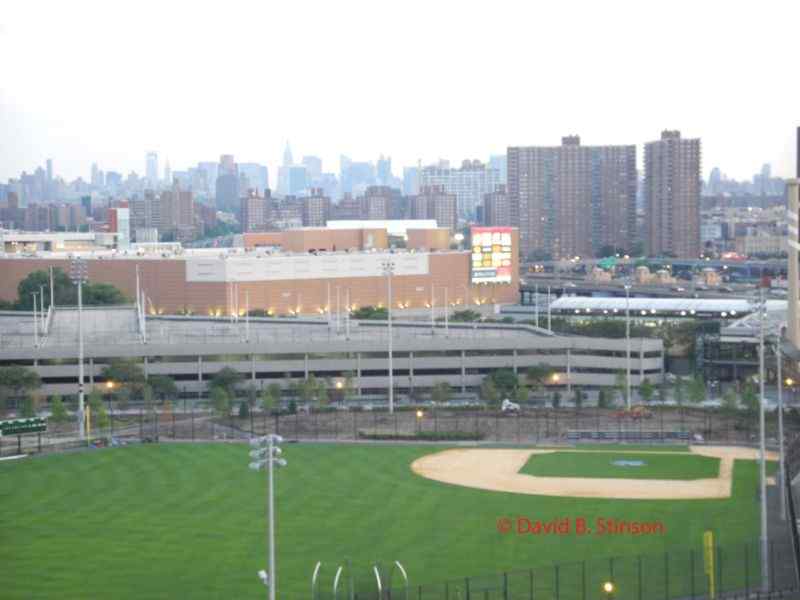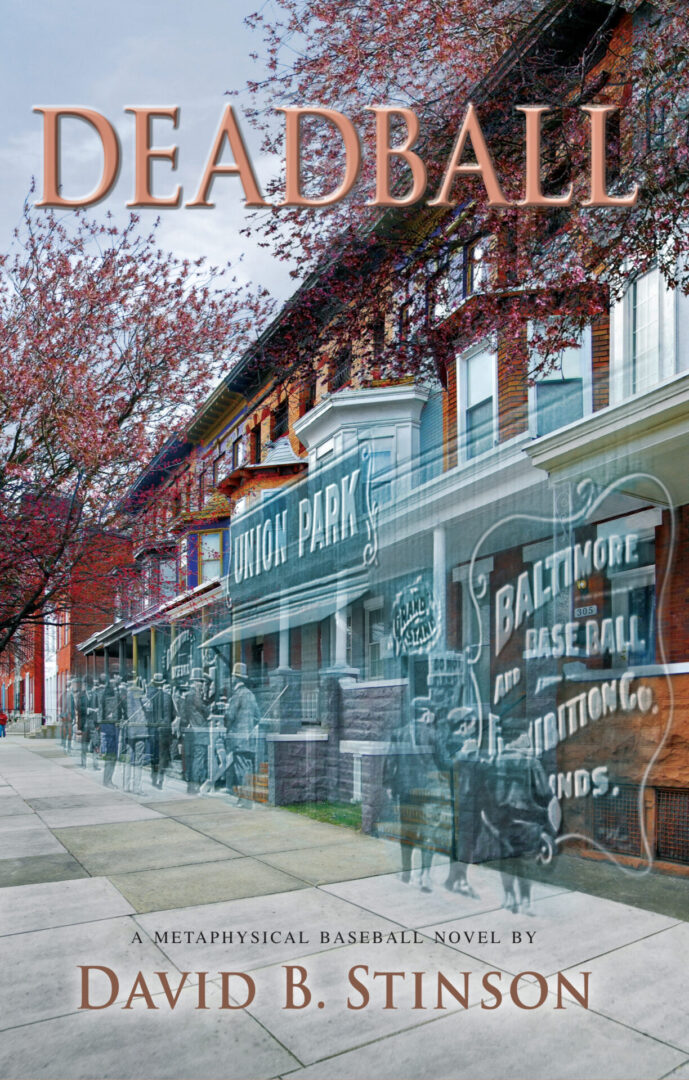Old Yankee Stadium was the home of the New York Yankees from 1923 to 2008.
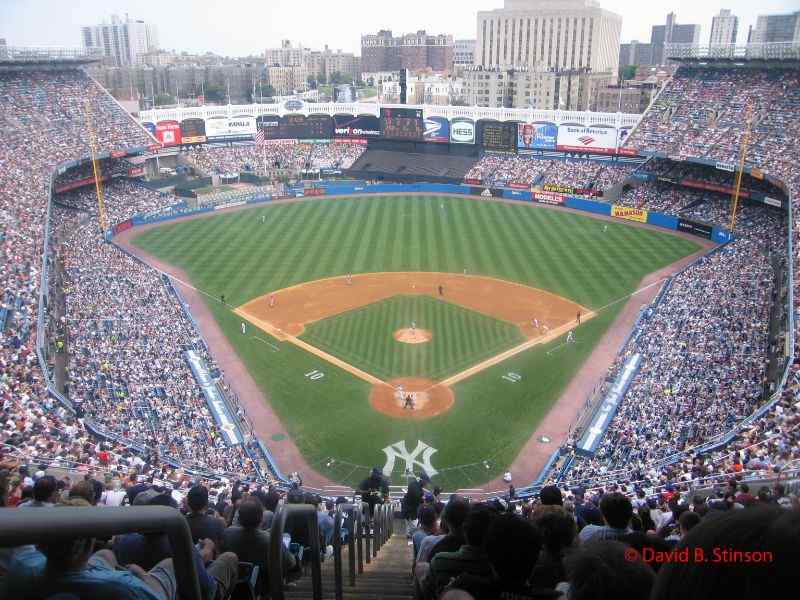
It was located at 161st Street and River Avenue in the Bronx, across 161st Street from the new Yankee Stadium.
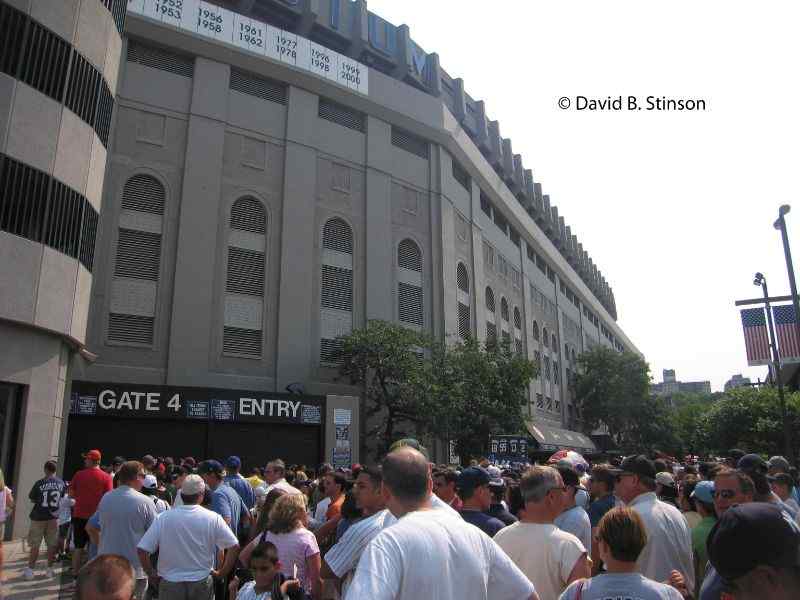
The stadium was renovated extensively during the 1970s. For some fans, the true “old Yankee Stadium” is the one that existed prior to that renovation. Gate 2, however, was one of the few sections to retain much of its original appearance. In 2010 an effort was underway to save Gate 2 from demolition. Unfortunately, that effort failed and Gate 2, along with the rest of the stadium, met the wrecking ball.
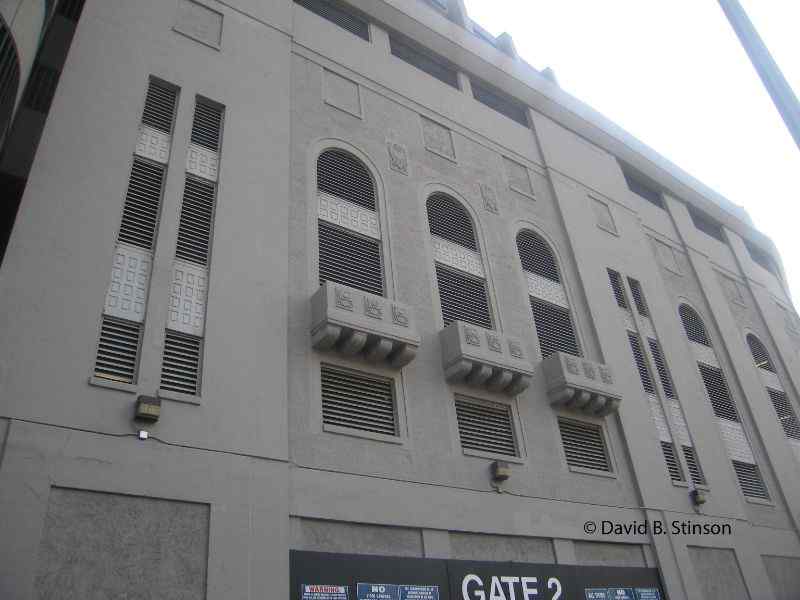
Arriving at old Yankee Stadium via the 161st Street Subway station provided fans a terrific panoramic view of the back of the stadium.
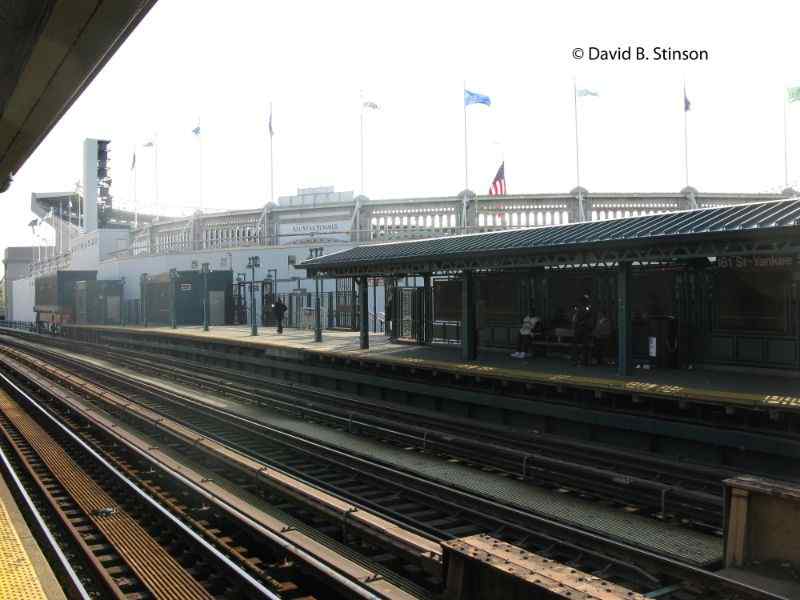
The inside of old Yankee Stadium seemed cavernous, especially the view from the upper deck.
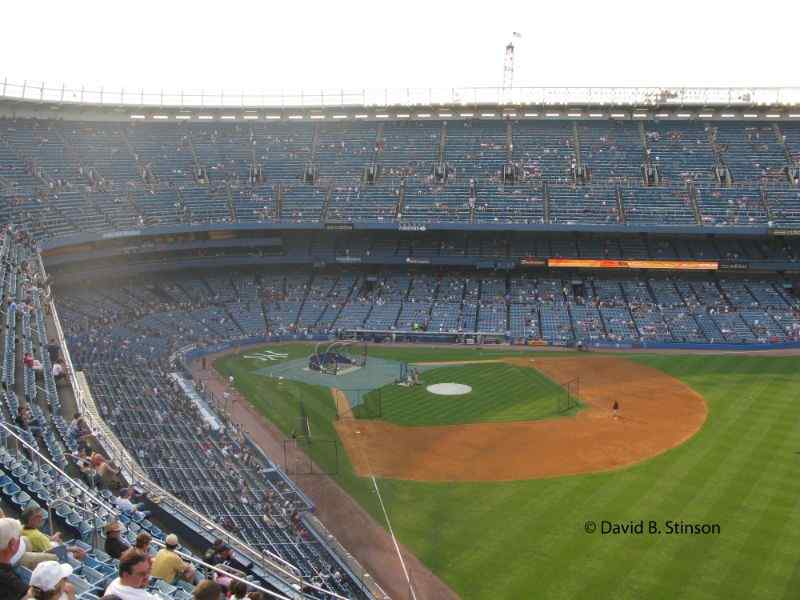
The color scheme of old Yankee Stadium was blue, blue, and more blue.
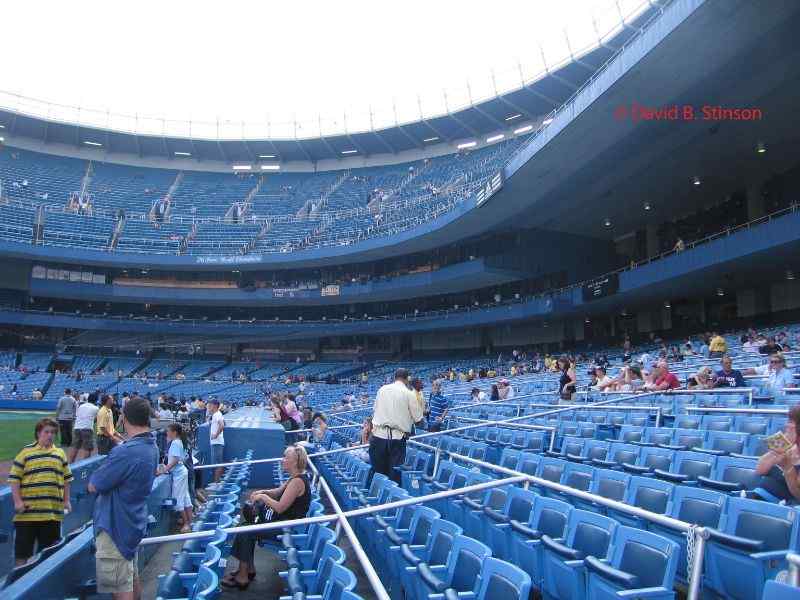
Monument Park, located on what once was the expansive back portion of old Yankee Stadium’s center field, was moved to new Yankee Stadium.
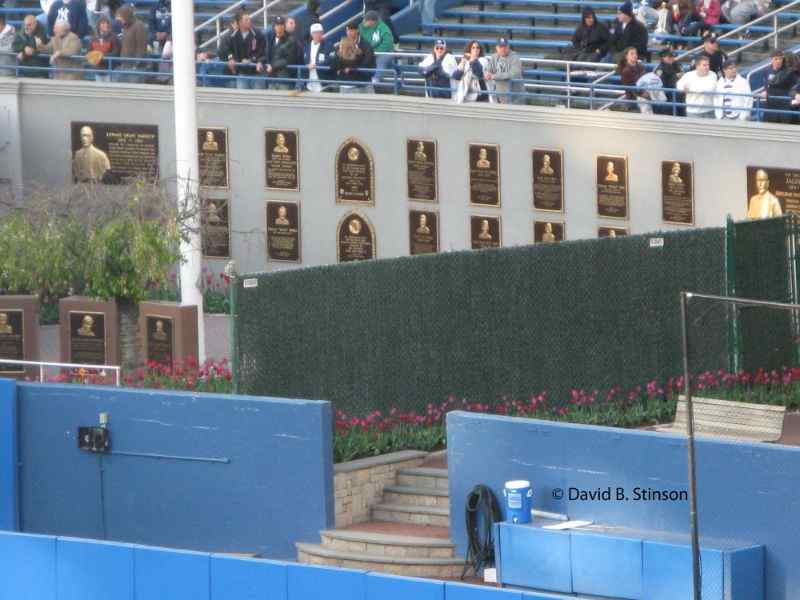
The Yankees bullpen was located in left-center field to the left of a portion of the old center-field bleachers known as “the black.” The bleachers had been painted black to facilitate the “batter’s eye,” helping batters at home plate pick up the pitch being thrown at them.
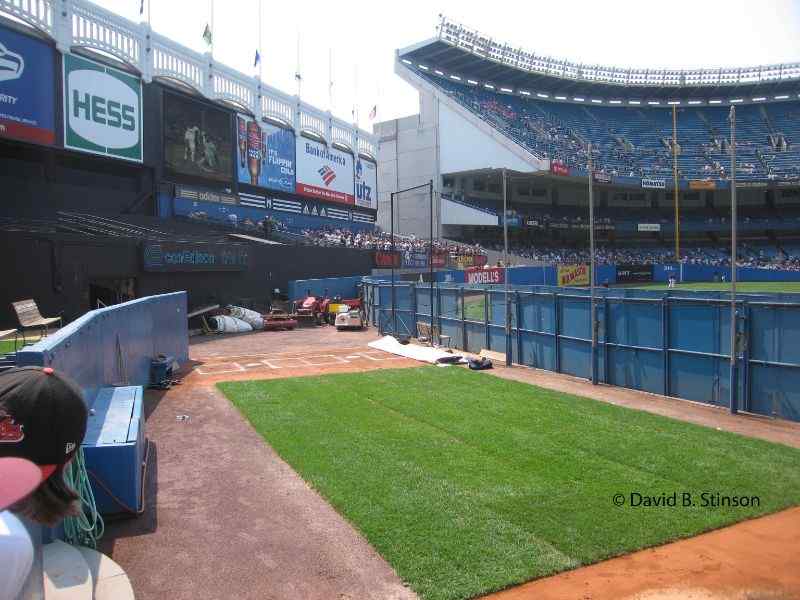
The visiting team bullpen was located beyond left field, to the left of monument park.
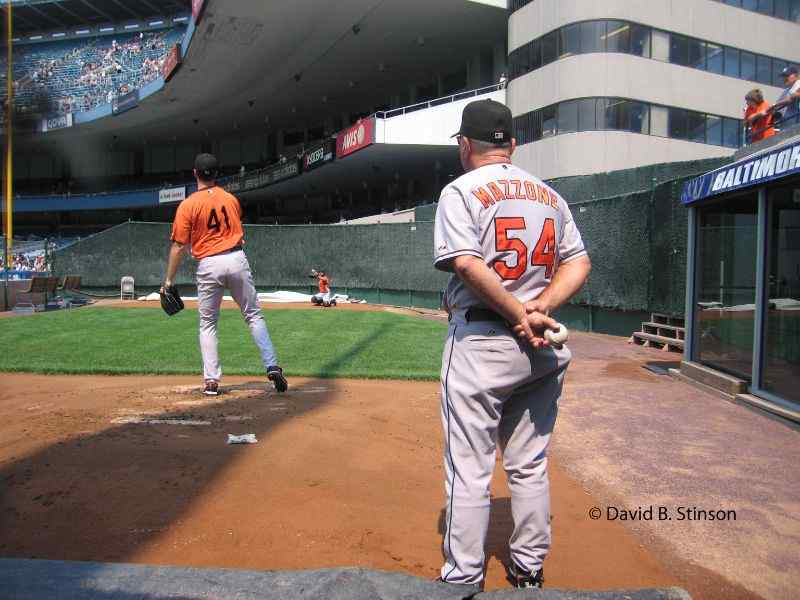
The foul poles were covered in layers of yellow paint.
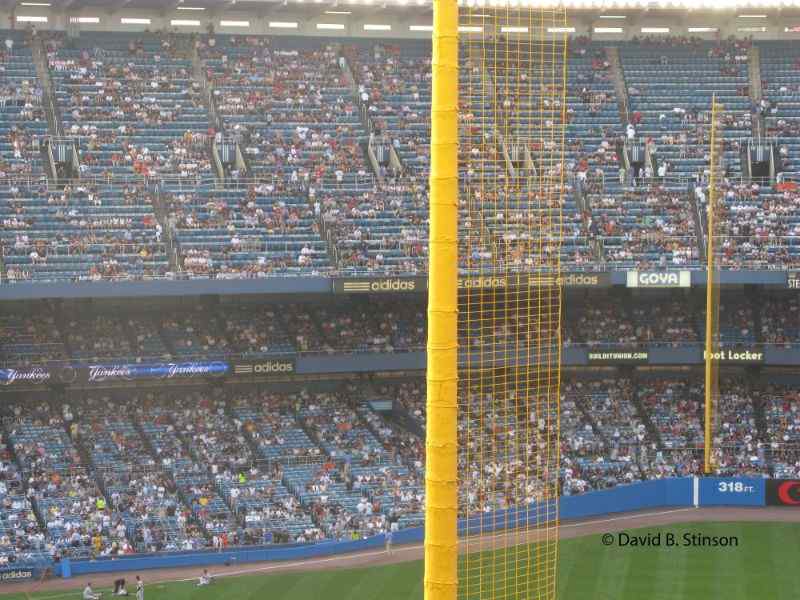
Passengers riding the train past the 161st Street station had a quick view inside the stadium – at no charge other than the cost of a subway token.
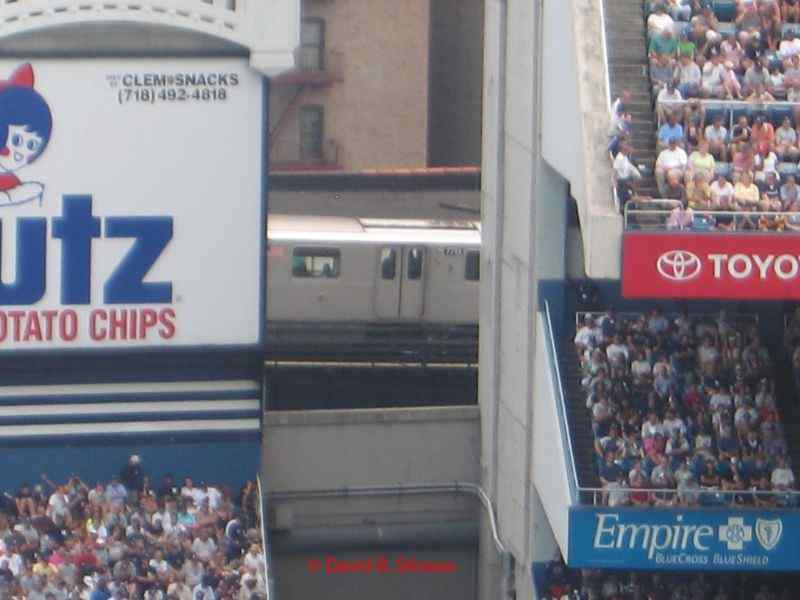
The seating bowl rose high above the playing field, requiring that those sitting at the top of the stadium have both good eyesight and a strong stomach.
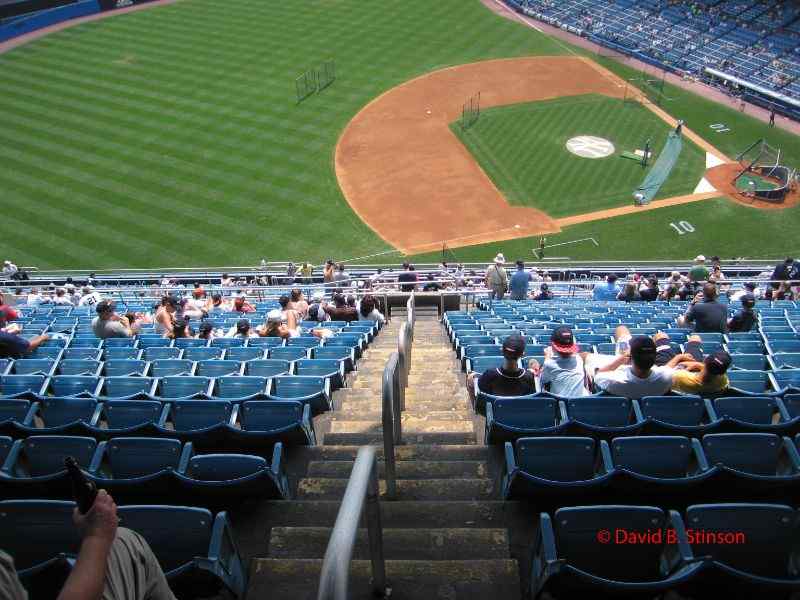
The light stanchions of old Yankee Stadium were located flush along the top of the roof.
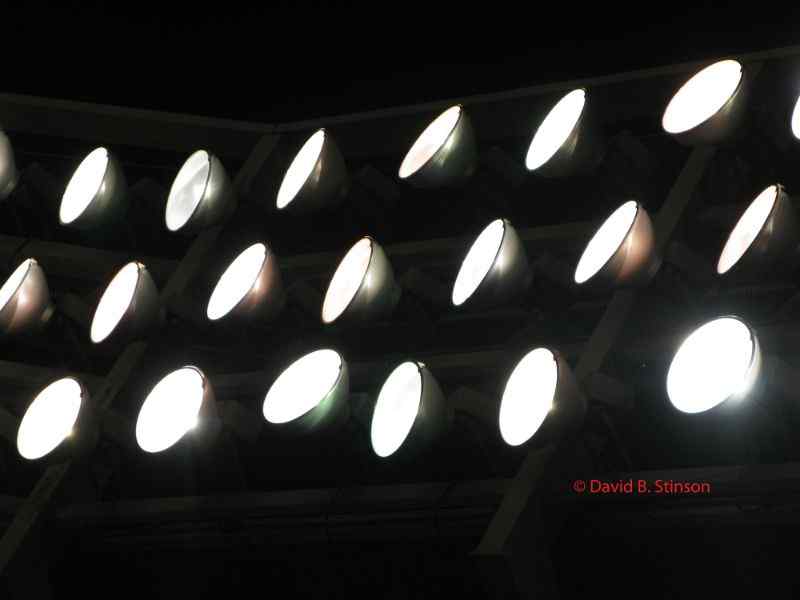
The white plastic tarp placed during rain delays at old Yankee Stadium sat in contrast to the blue, blue seats of the upper and lower seating bowl.
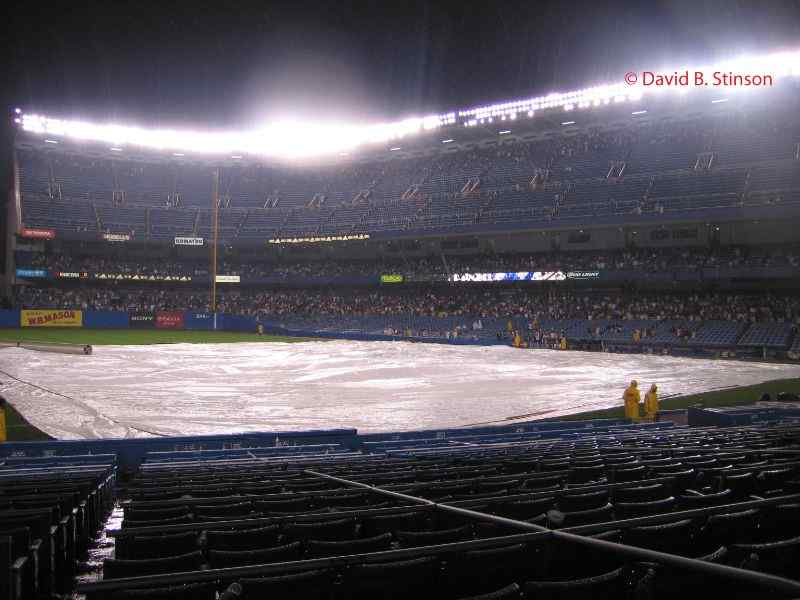
As proof that nothing is sacred and nothing lasts forever, in 2006, the Yankees broke ground on a new Yankee Stadium to be located across the street from old Yankee Stadium.
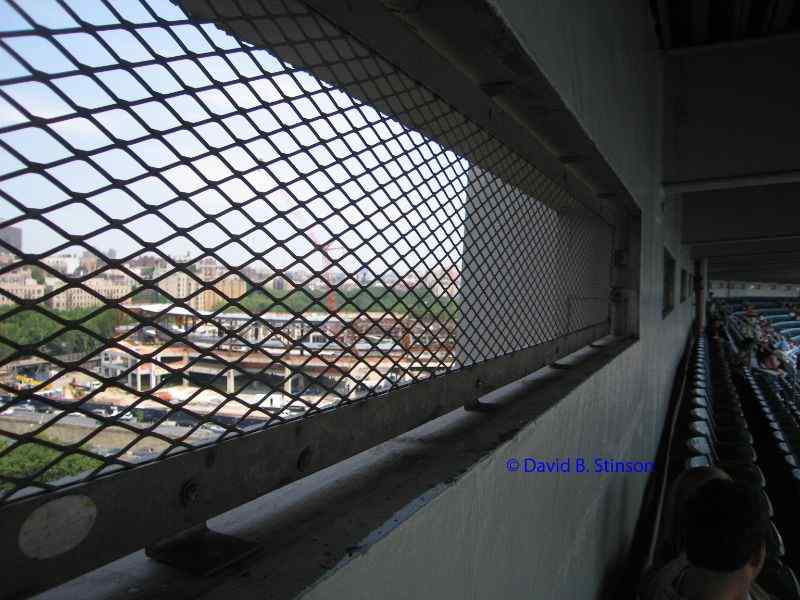
New Yankee Stadium Under Construction as seen from Behind Left Field Grandstand Circa 2007
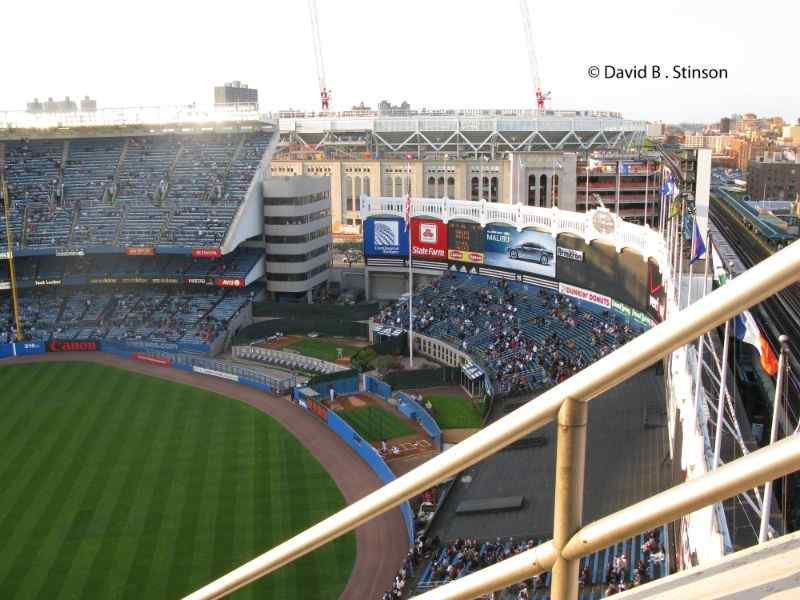
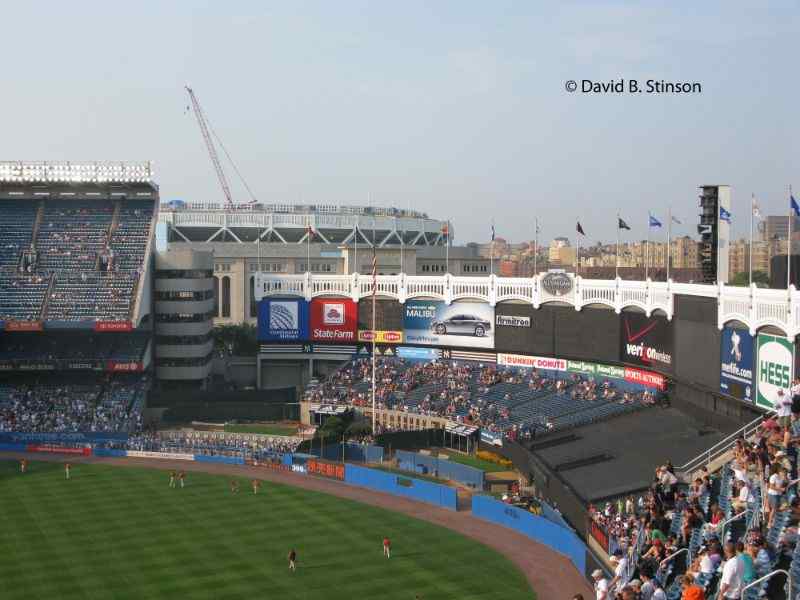
The original frieze of old Yankee Stadium was replicated in new Yankee Stadium.
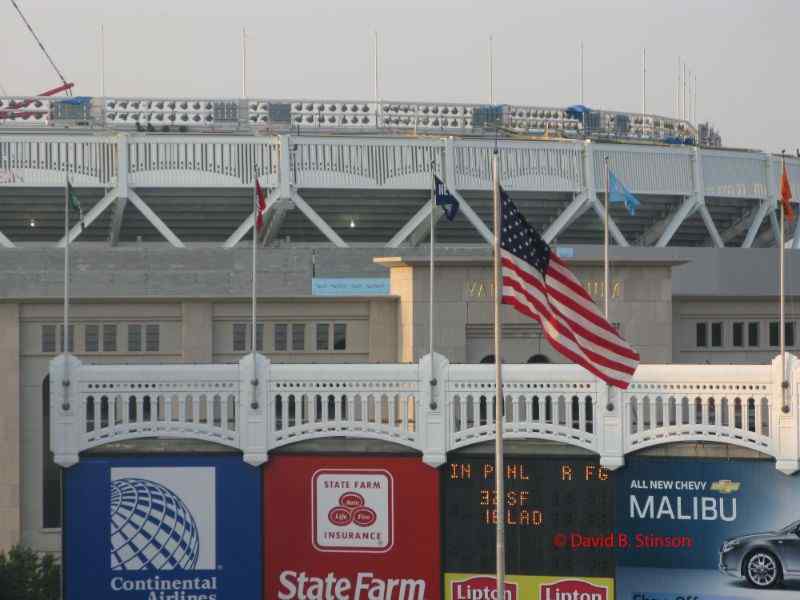
The site of old Yankee Stadium is now a public park known as “Heritage Field.”
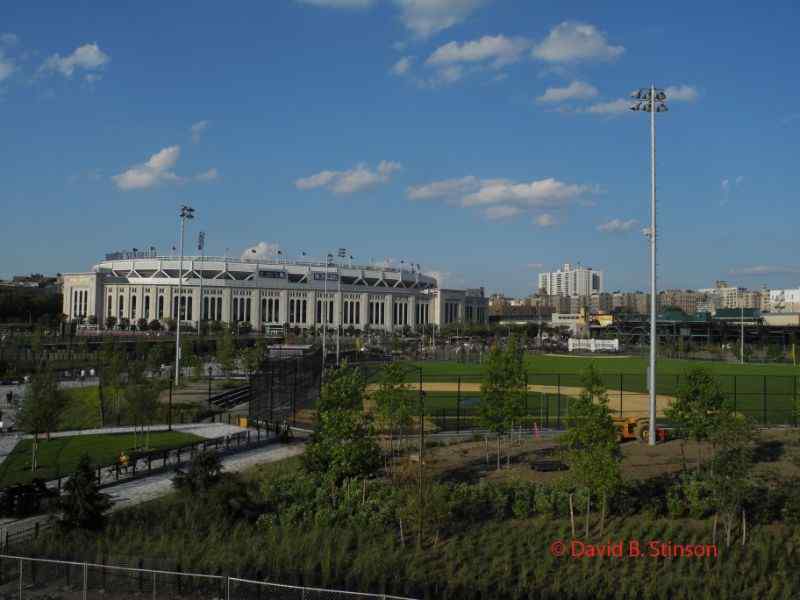
For baseball fans accustomed to watching Yankees games either in person or on television, the Bronx County Courthouse is a familiar site, having once loomed over right center field at old Yankee Stadium.
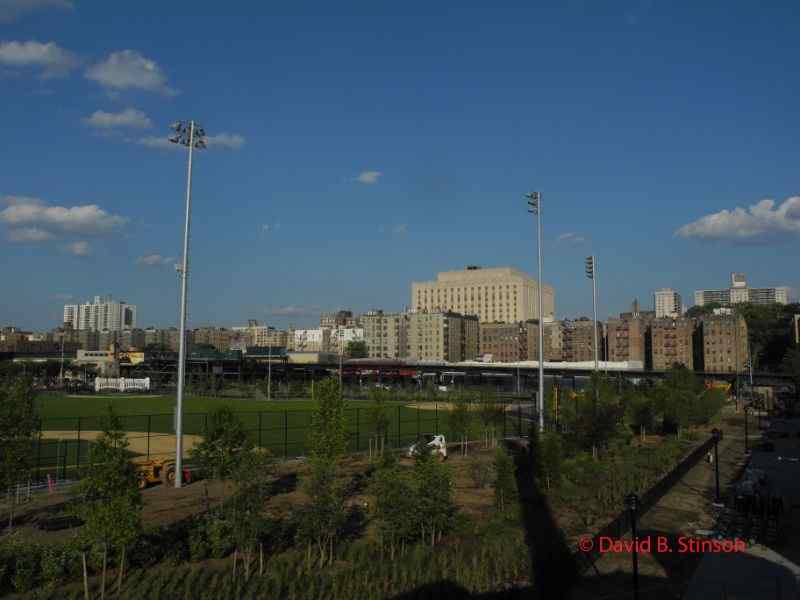
The Giant 138 foot Louisville Slugger Bat (which serves as an exhaust pipe for the subway) remains in its original location outside the former site of old Yankee Stadium.
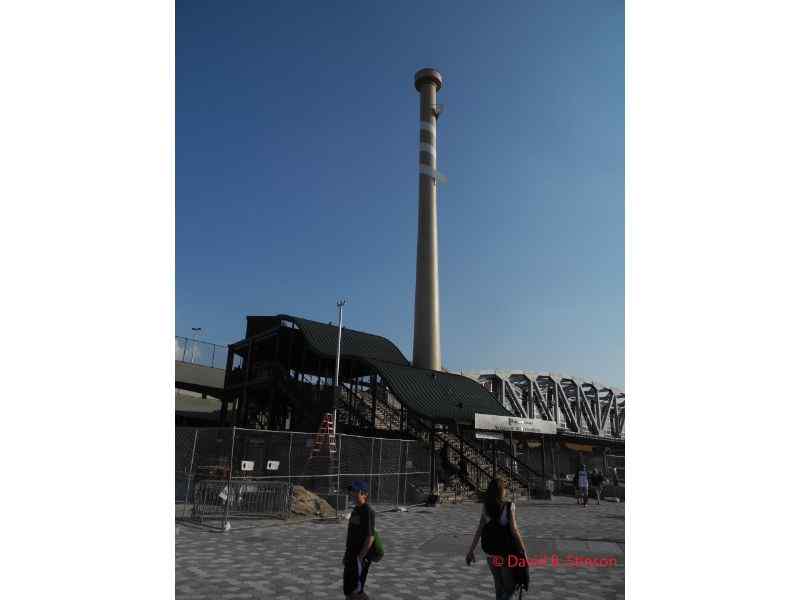
The playing field at old Yankee Stadium has been recreated with the infield in its original spot. Heritage Field includes a total of three ball fields. In what was once center field is a section of the frieze from old Yankee Stadium.
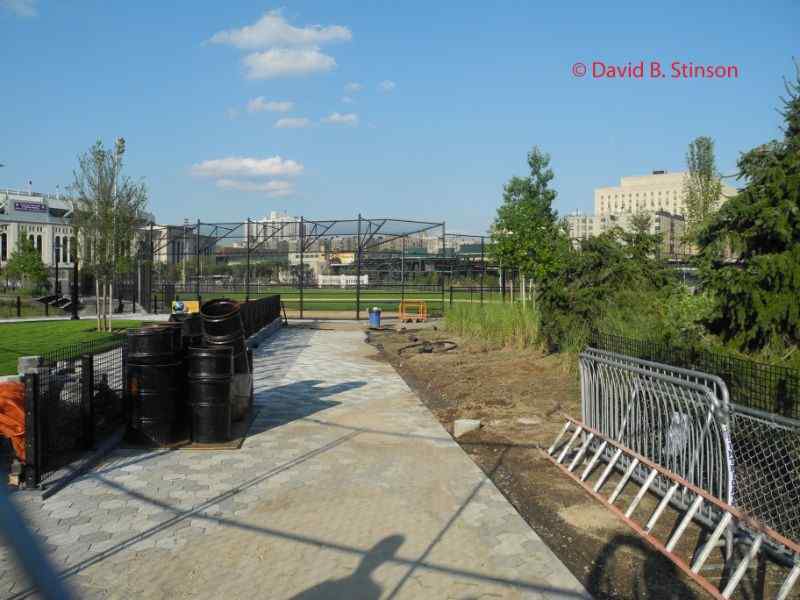
The sidewalk surrounding Heritage Field includes markers recognizing significant moments in the history of old Yankee Stadium.
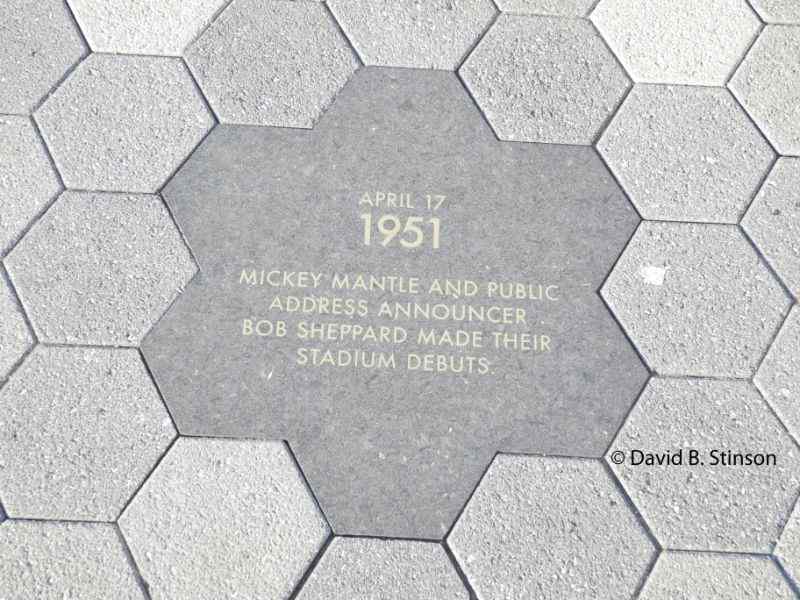
The old Yankee Stadium site is visible from within new Yankee Stadium from the escalator above the Hall of Legends.
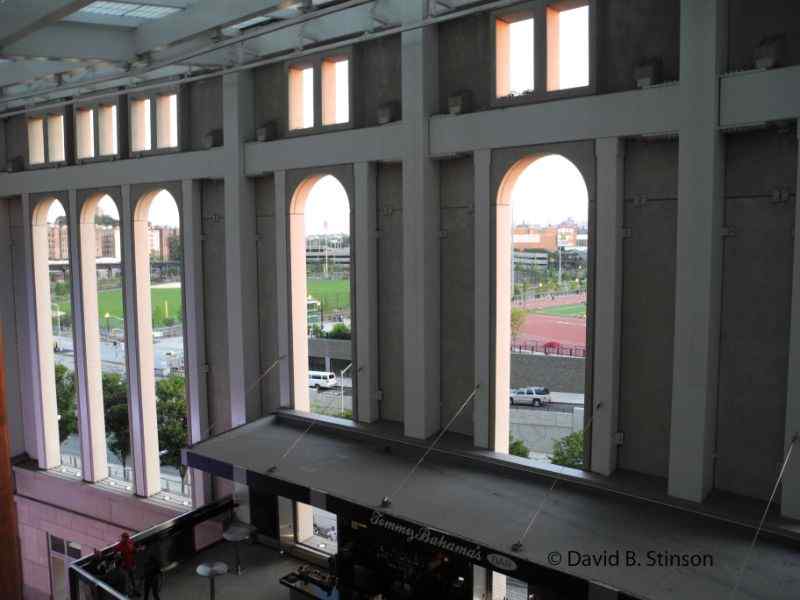
The site of home plate is visible between the Hall of Legends columns.
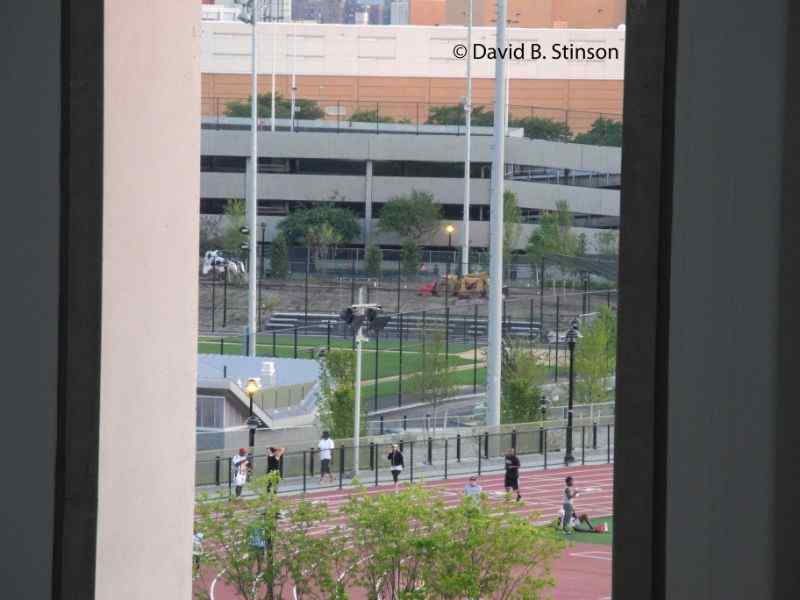
The giant Louisville Slugger bat is visible as well.
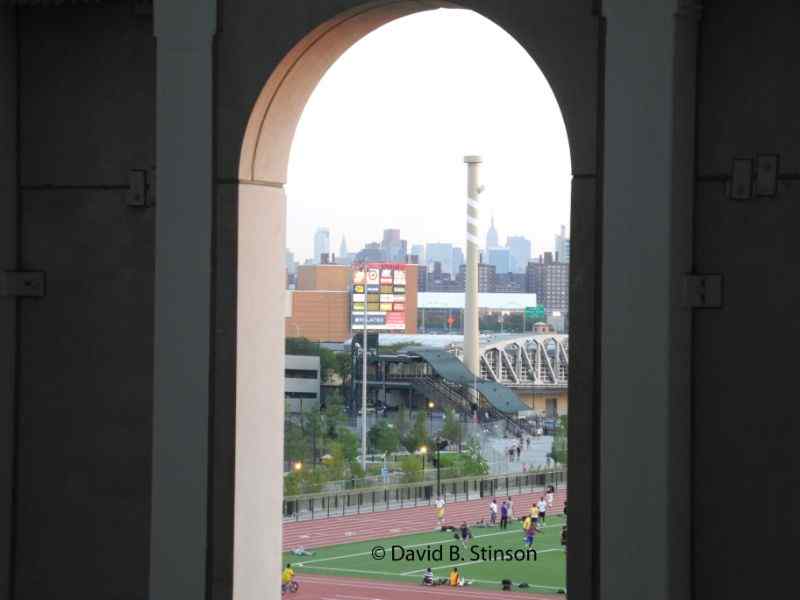
At the top of the stadium along the first base line, the old Yankee Stadium site and Heritage Field are visible behind the last row of seats.
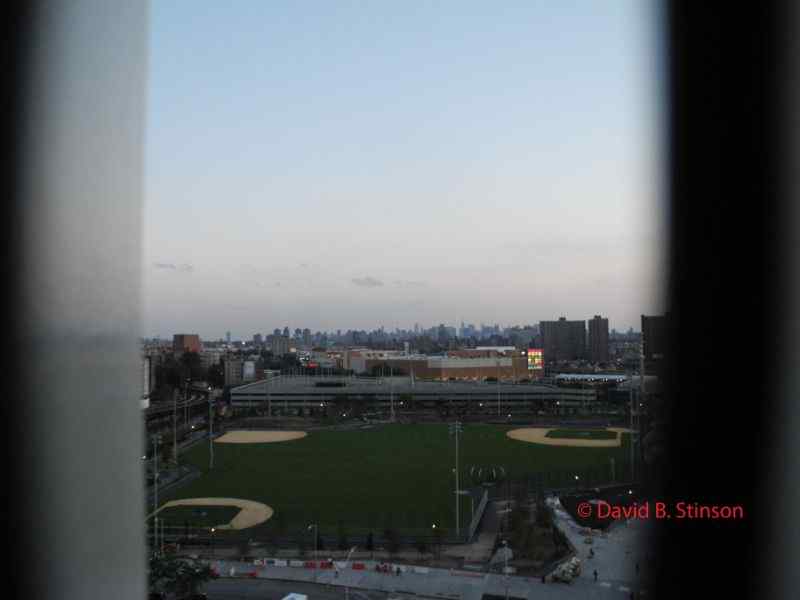
Having now visited the old Yankee Stadium site and seen a game in the new stadium, I still can’t believe they tore down old Yankee Stadium. Sure, future generations of fans will be able to stand where the stadium once stood and perhaps throw around a baseball. This certainly is better than having turned the site into a parking lot. But, it is little solace for those of us who wished the city and the team had found a way to build new Yankee Stadium in place of the old, keeping the playing field the same. In the end, old Yankee Stadium is now just another lost ballpark and the “House that Ruth Built” is now nothing more than a memory.
